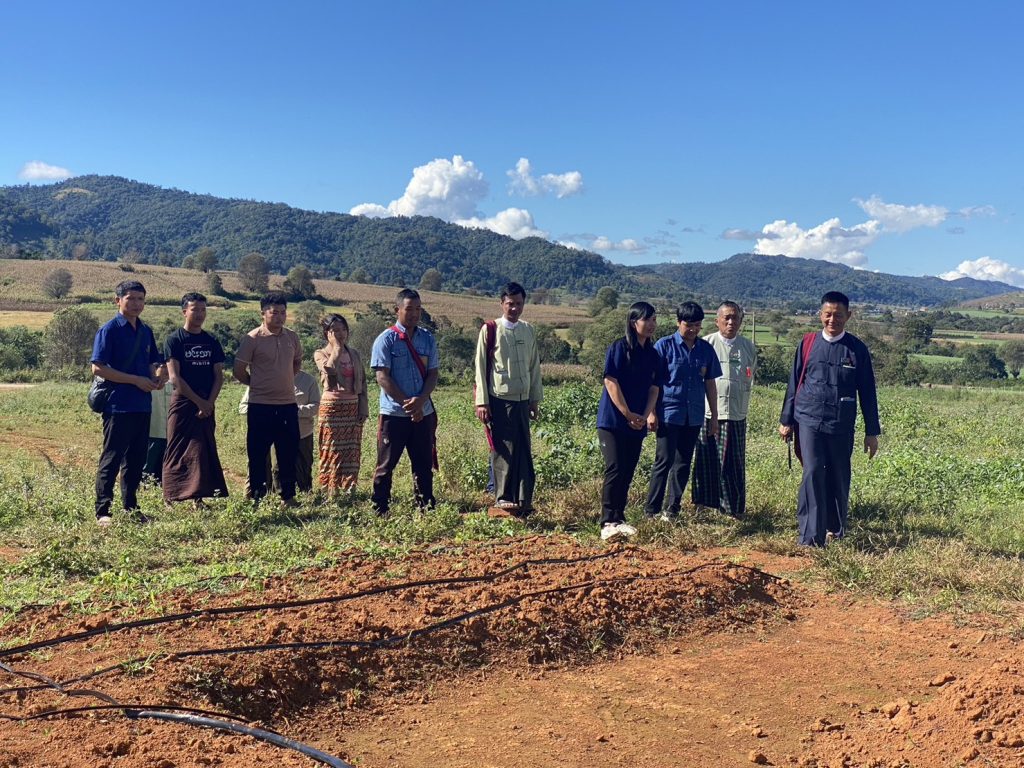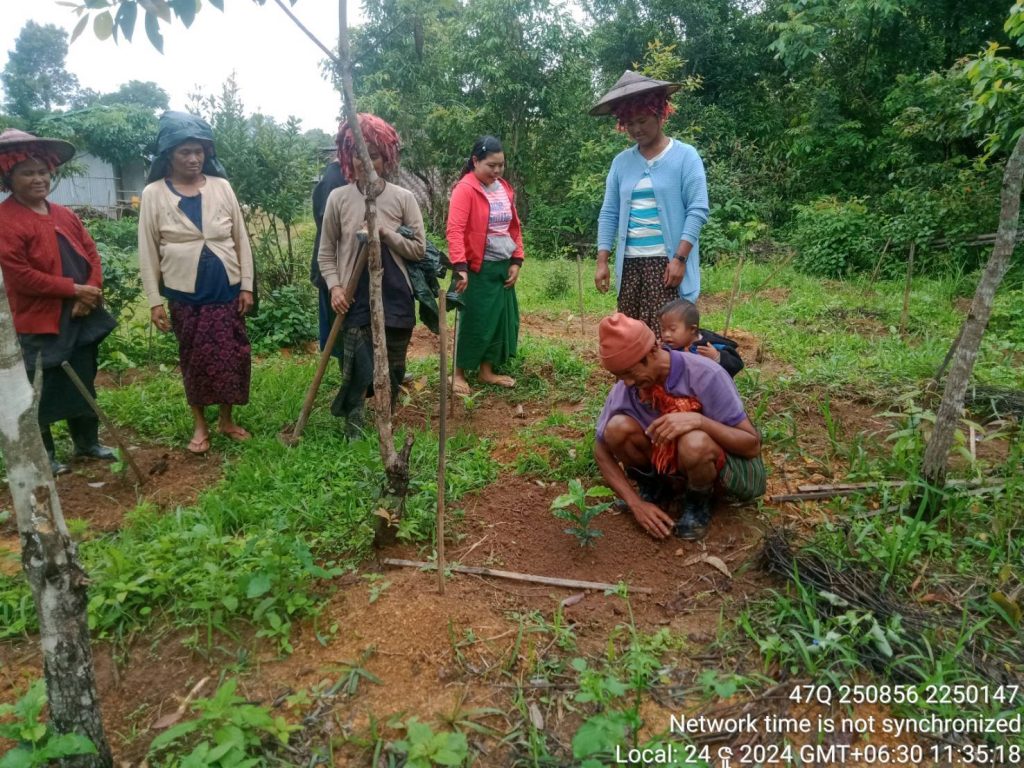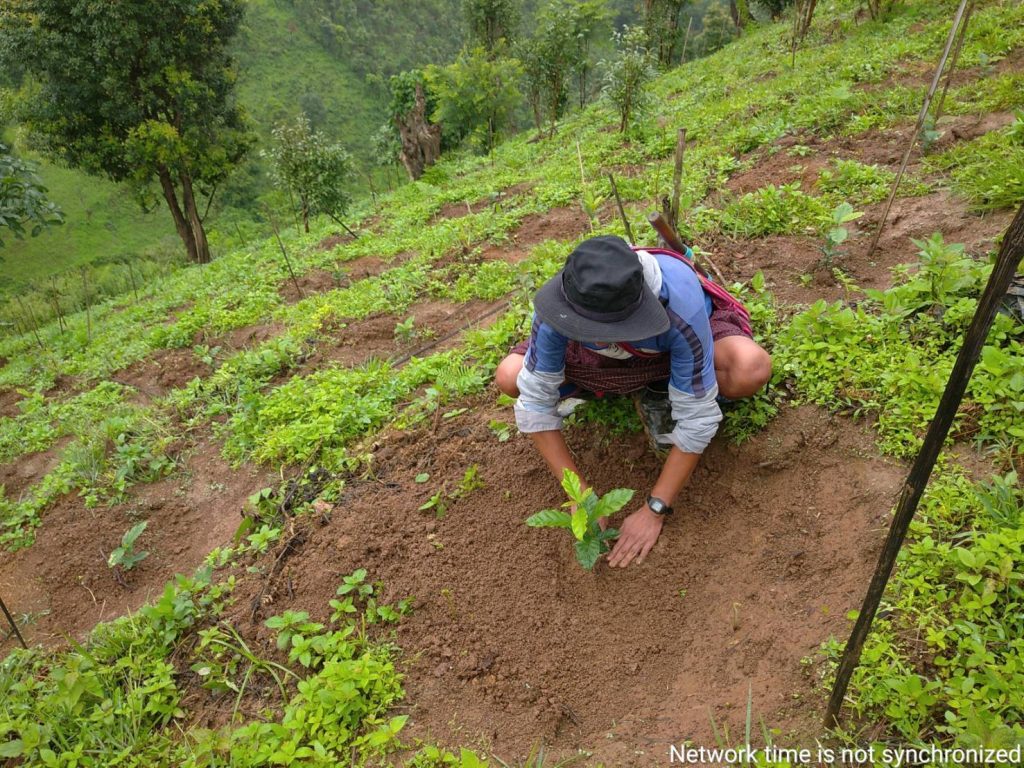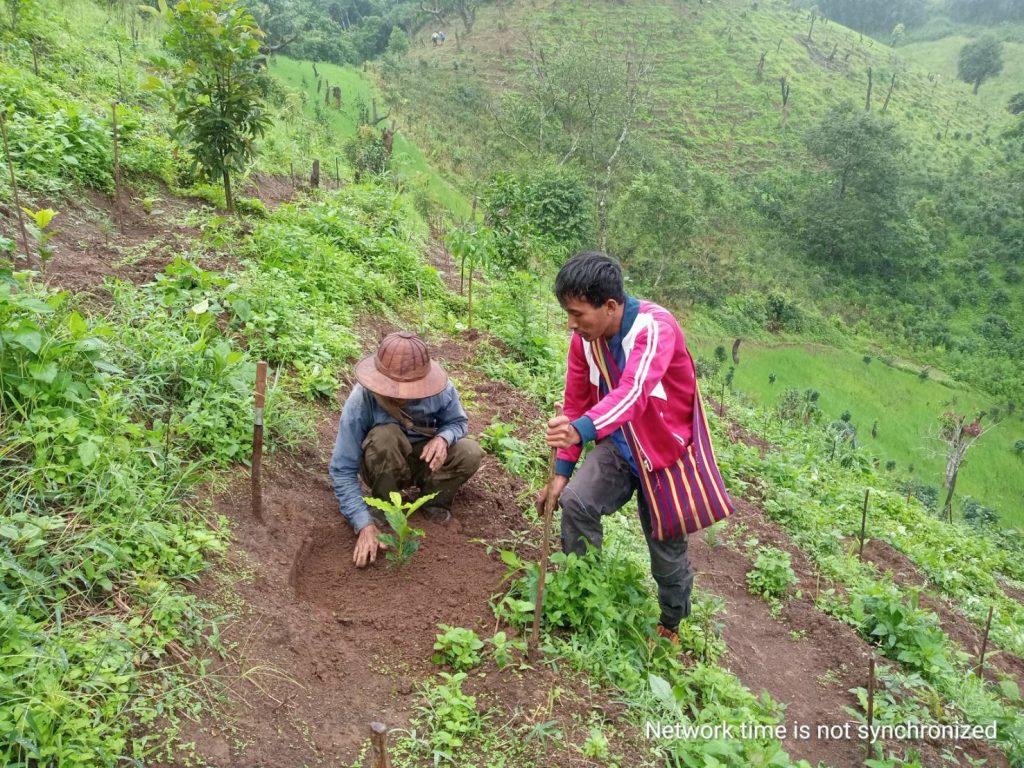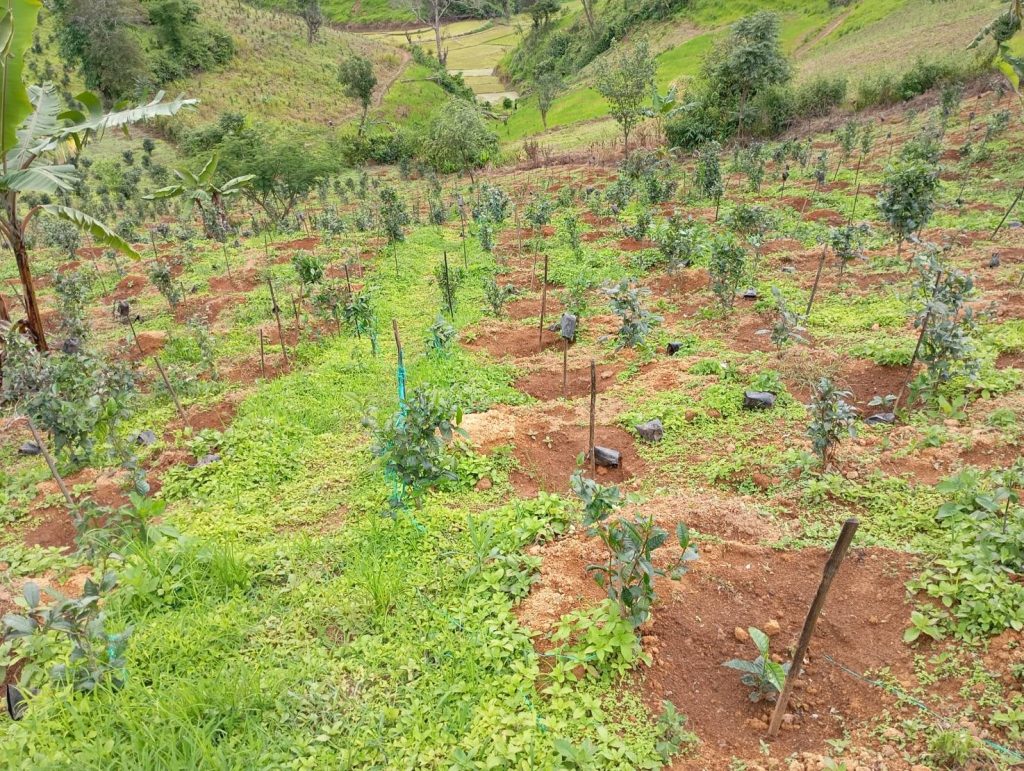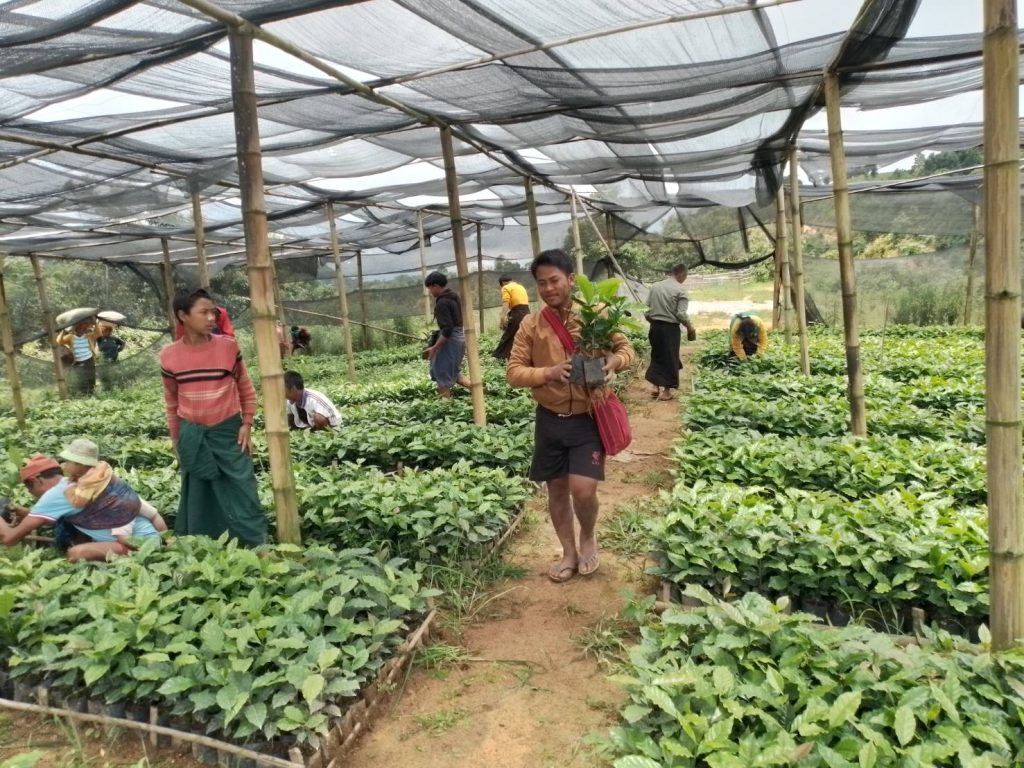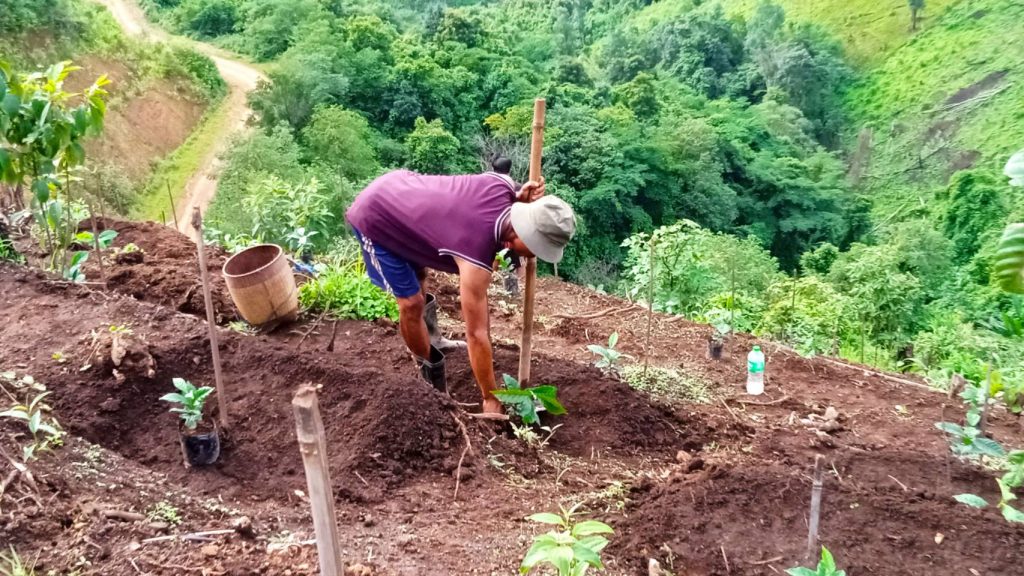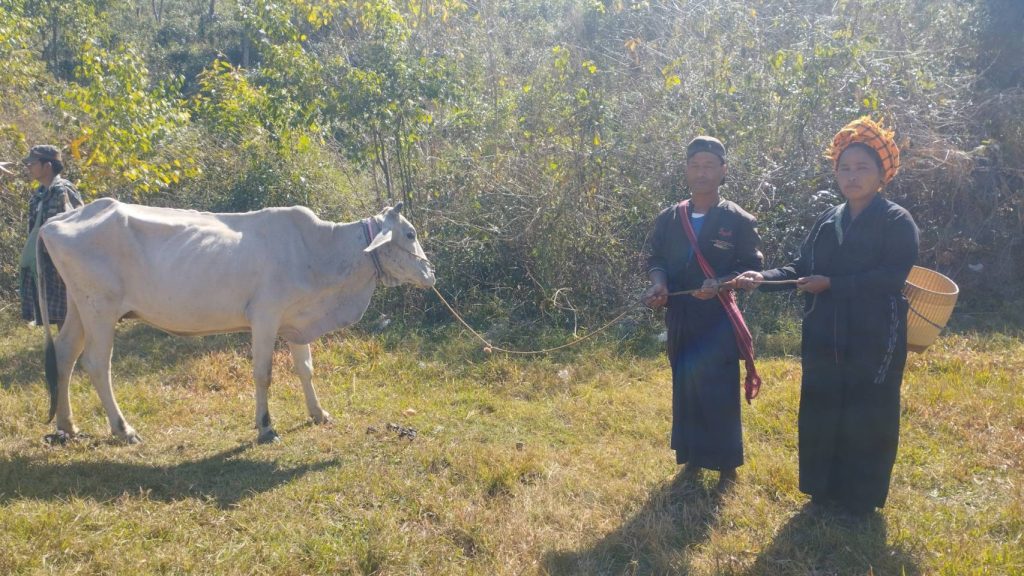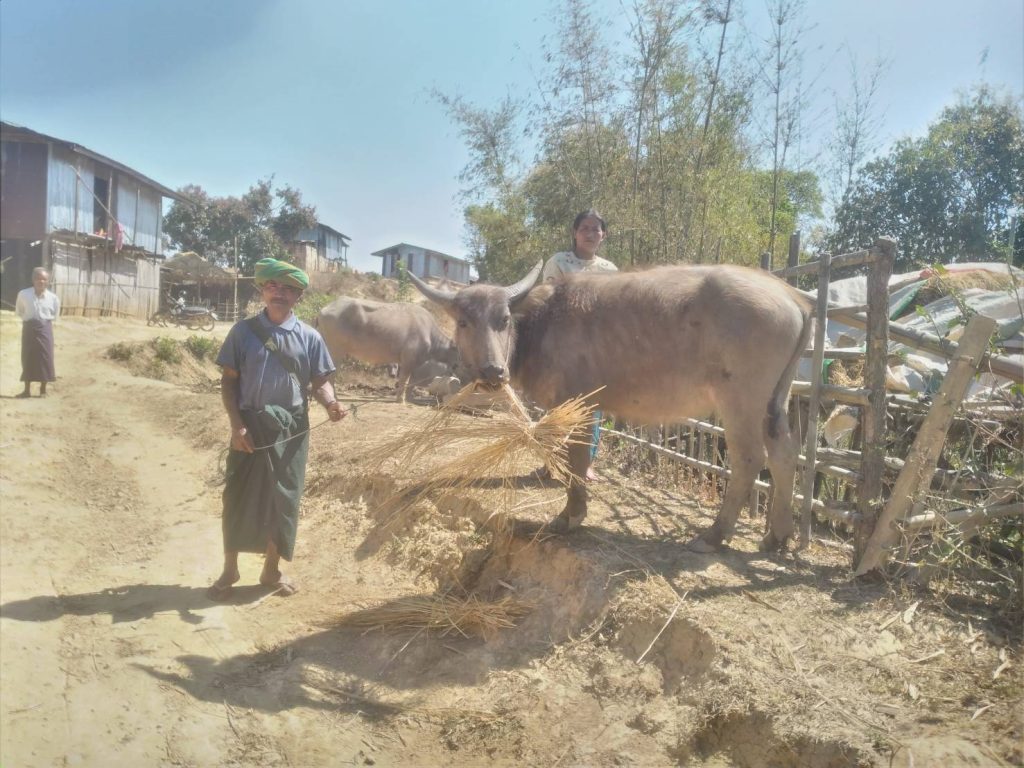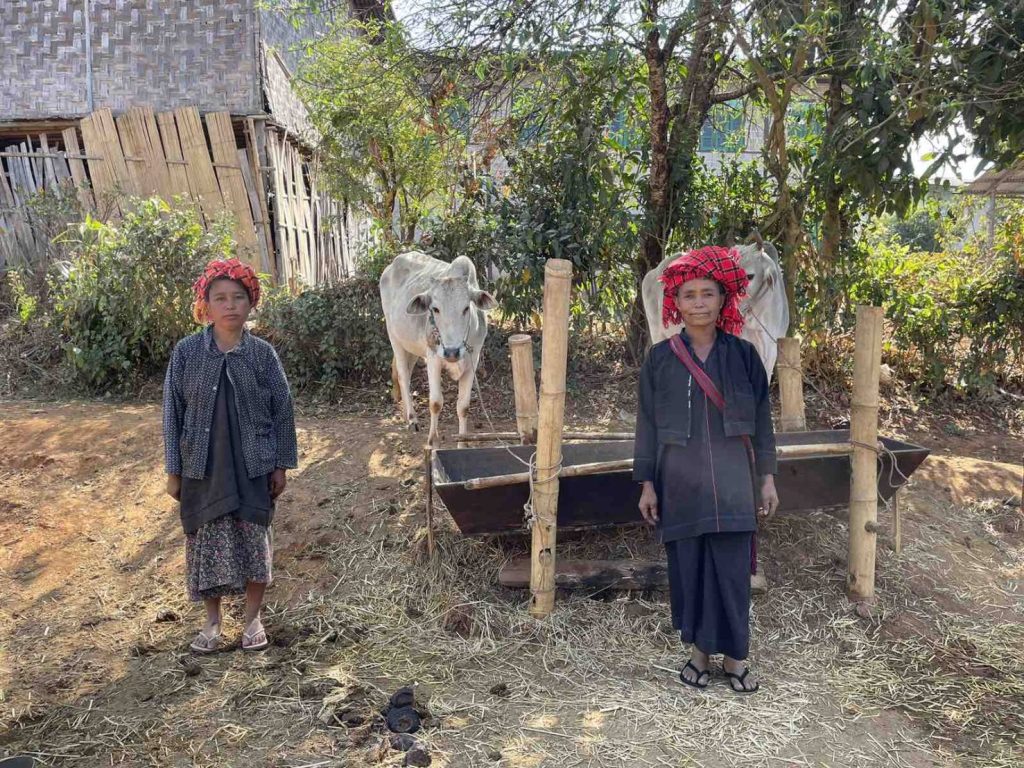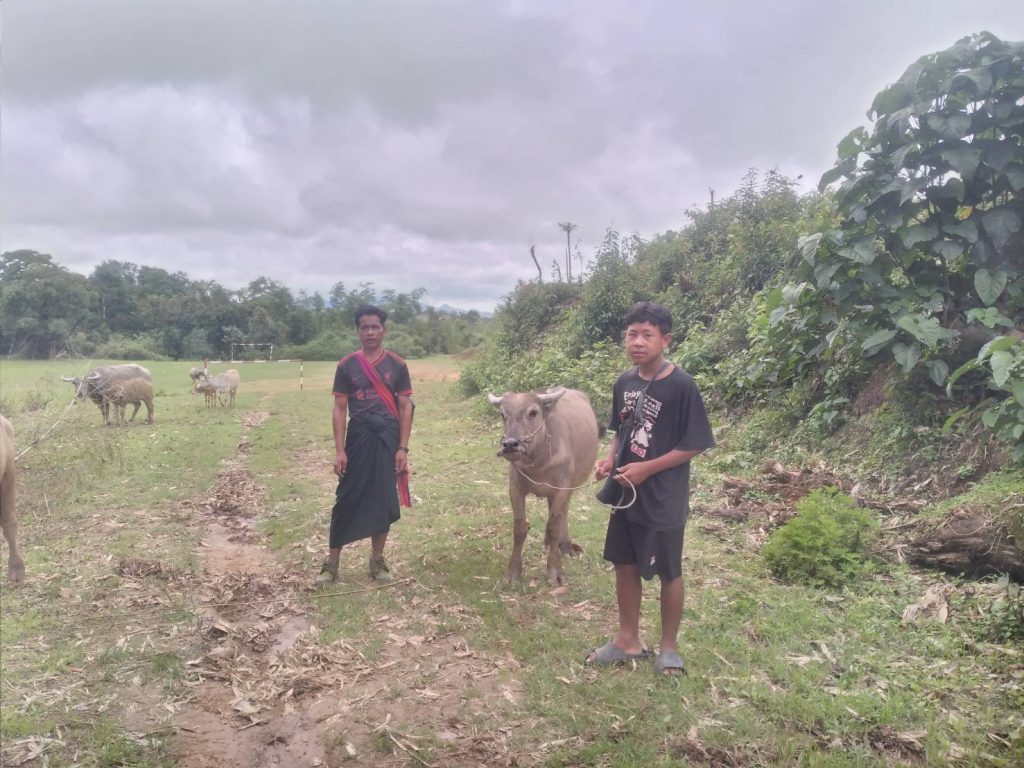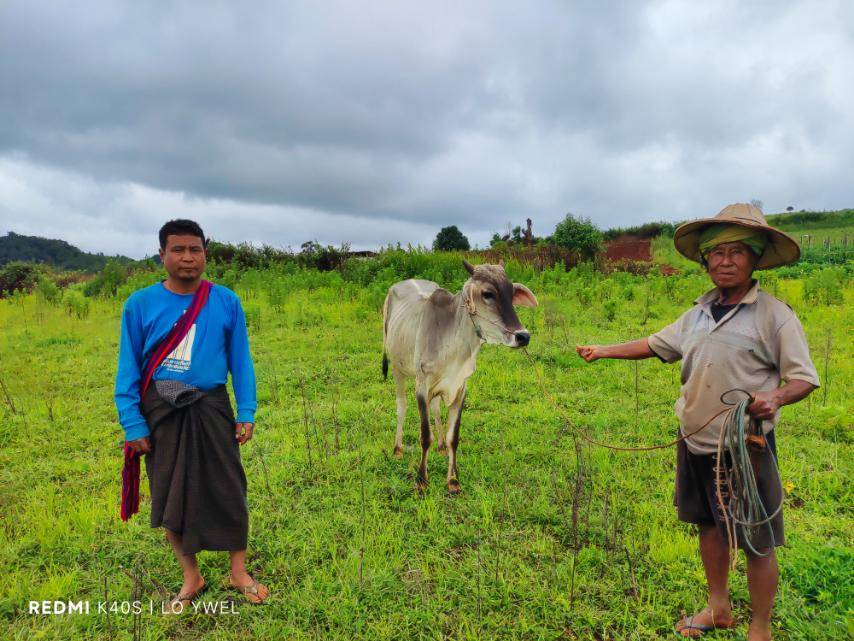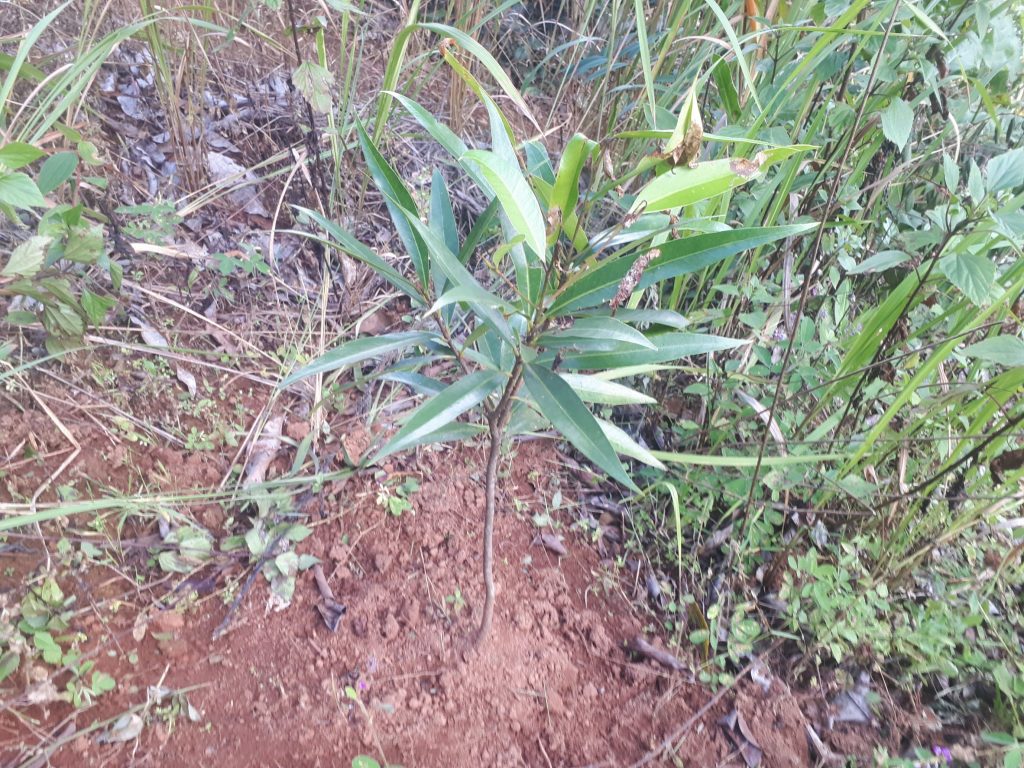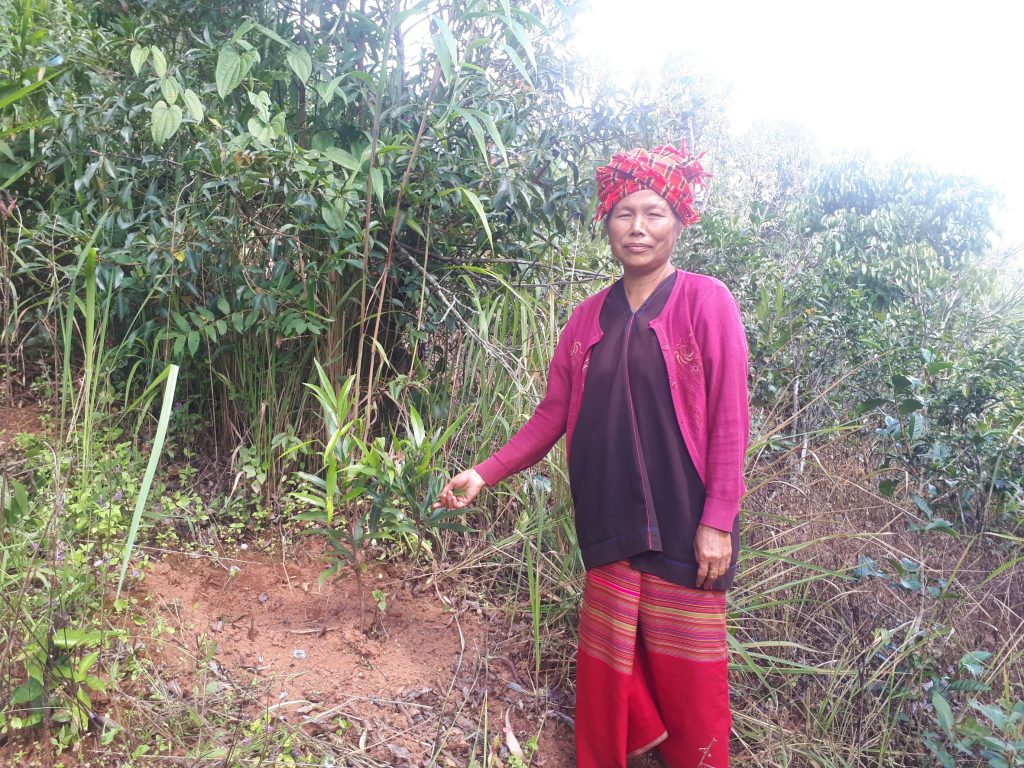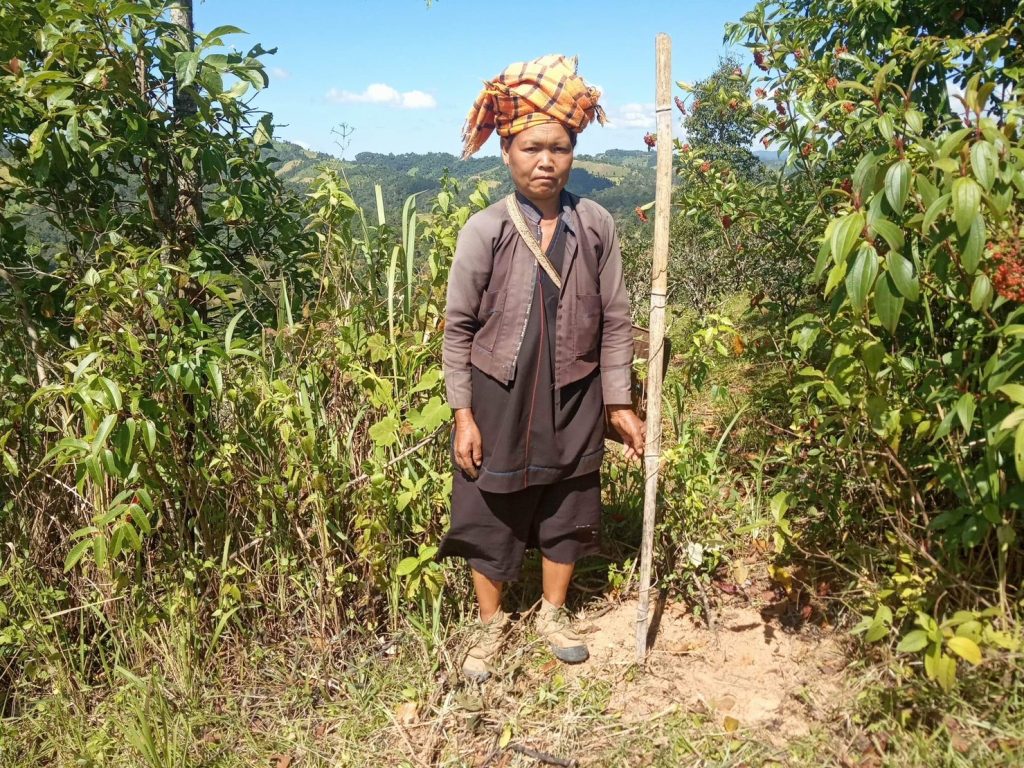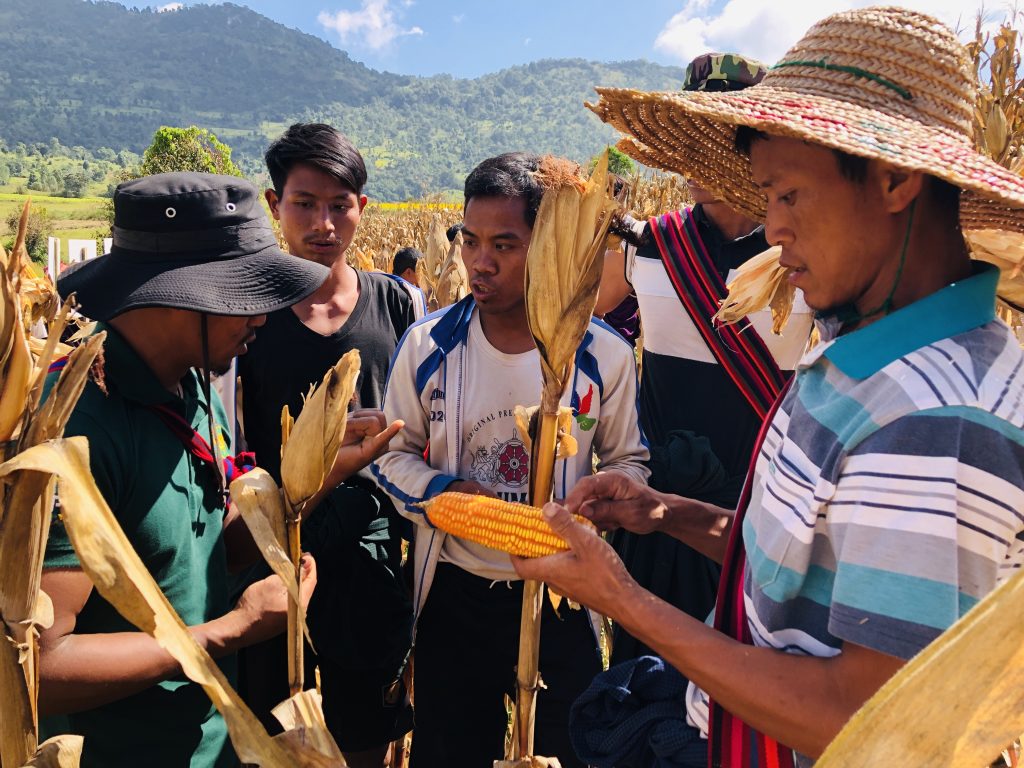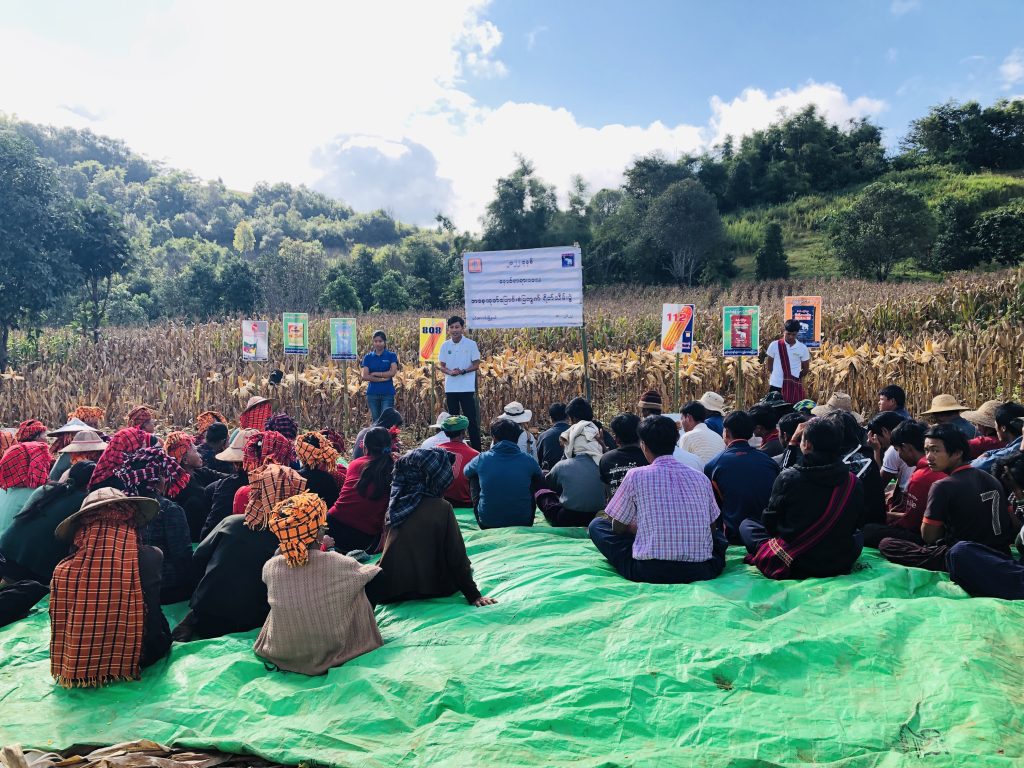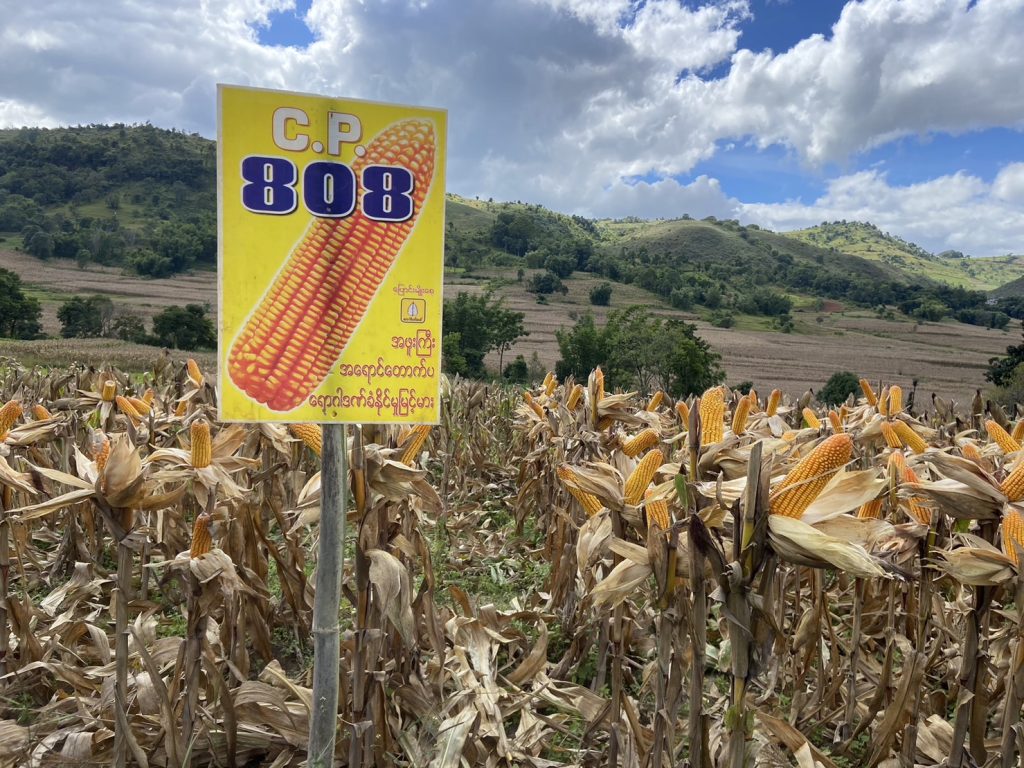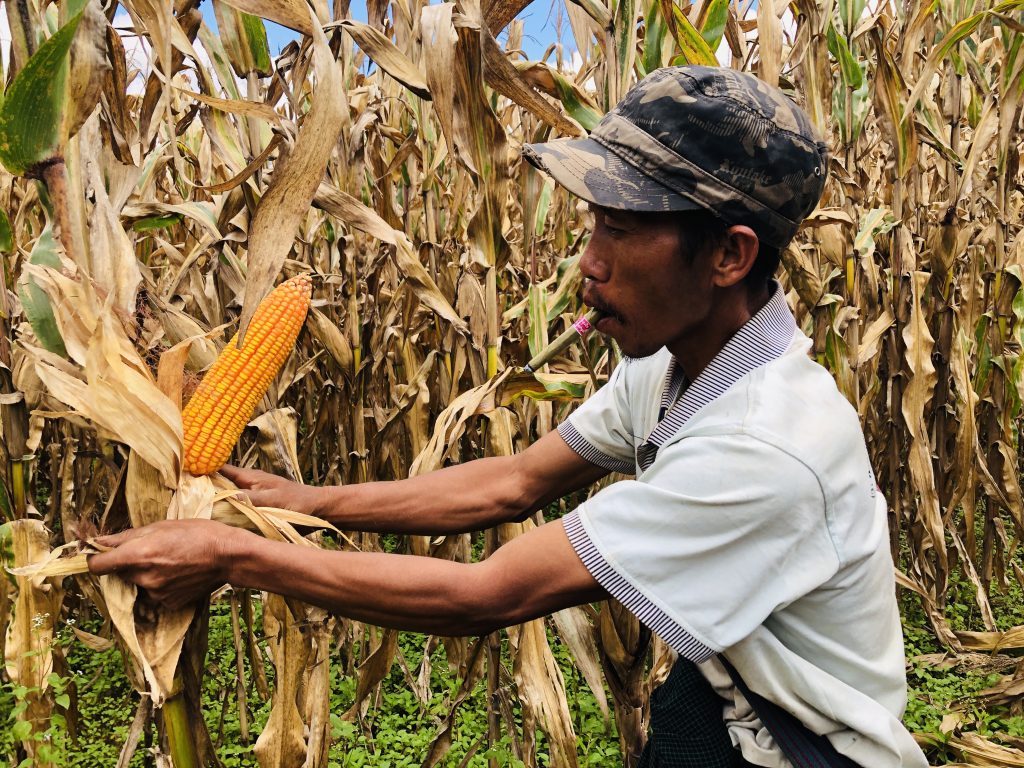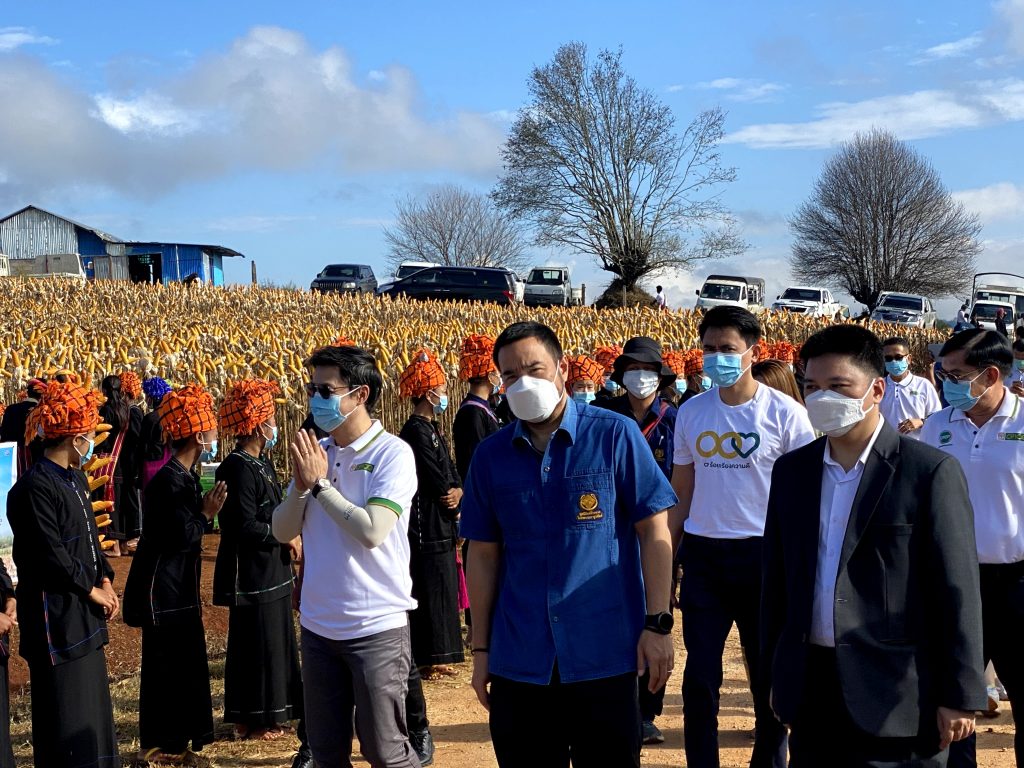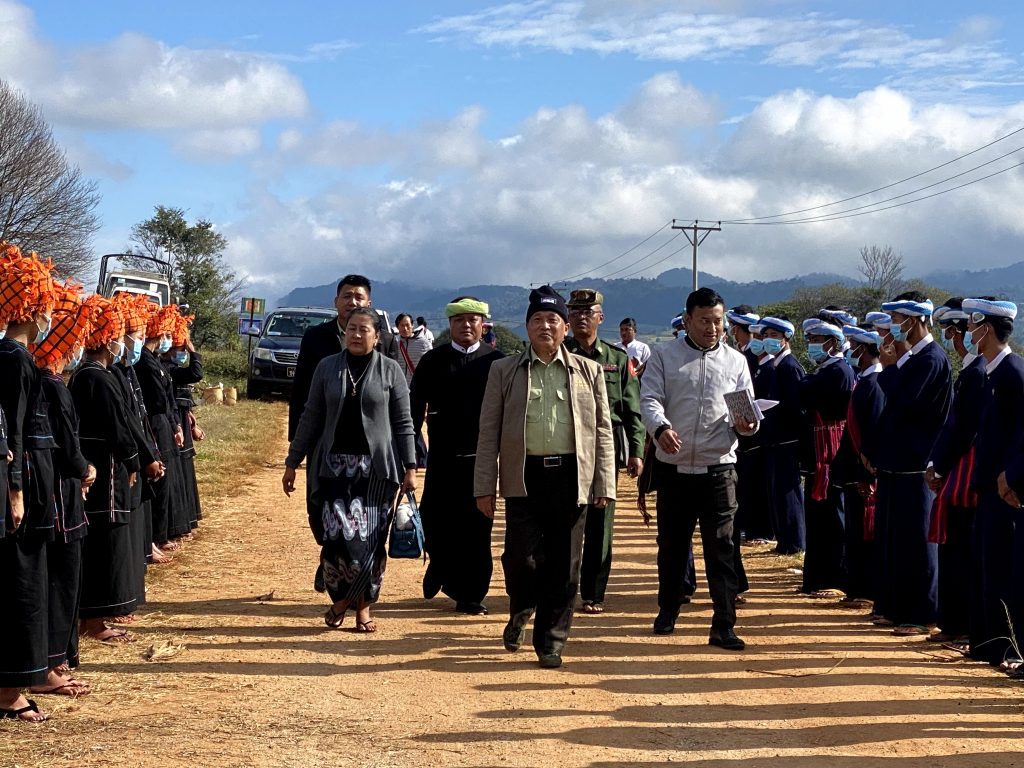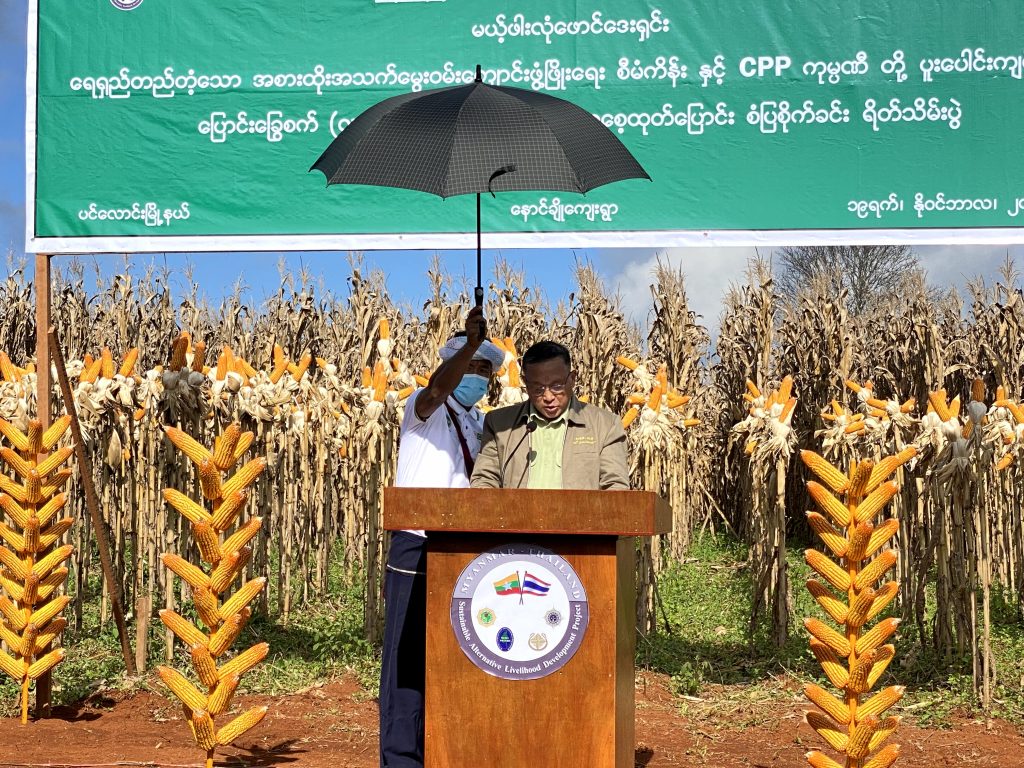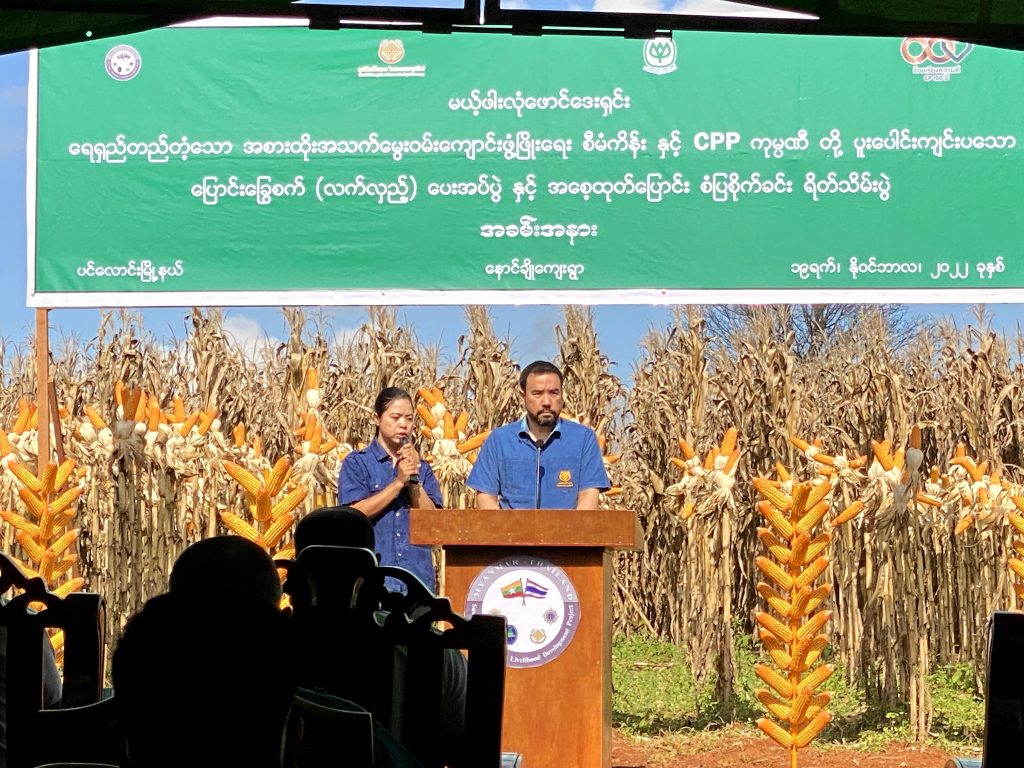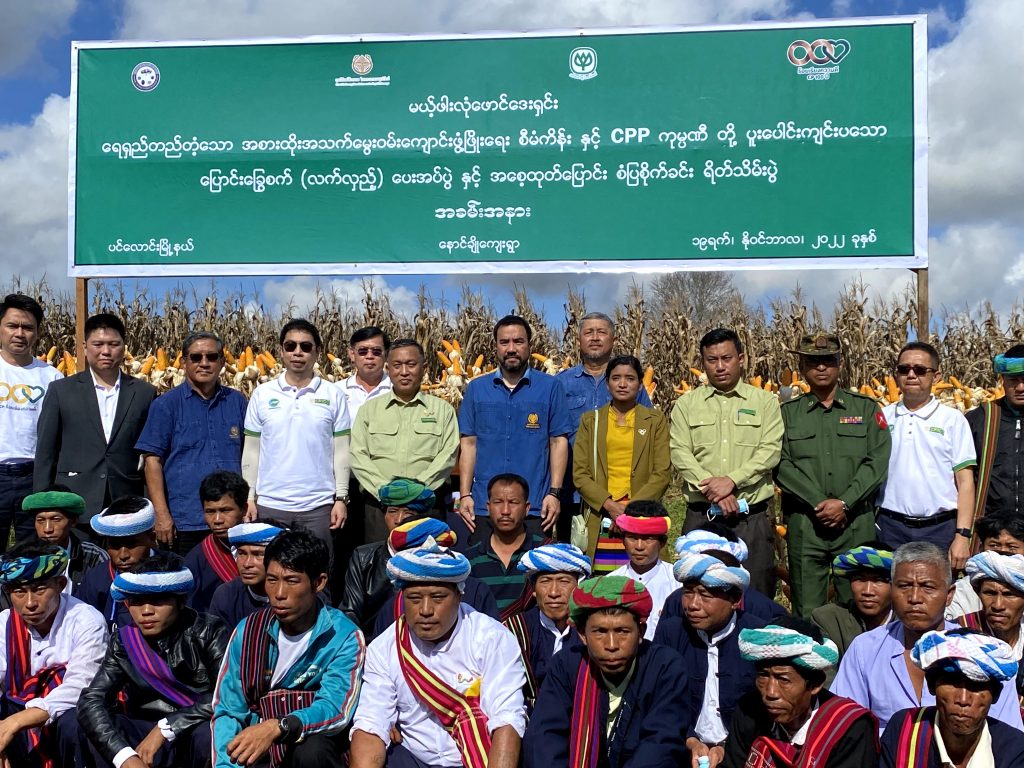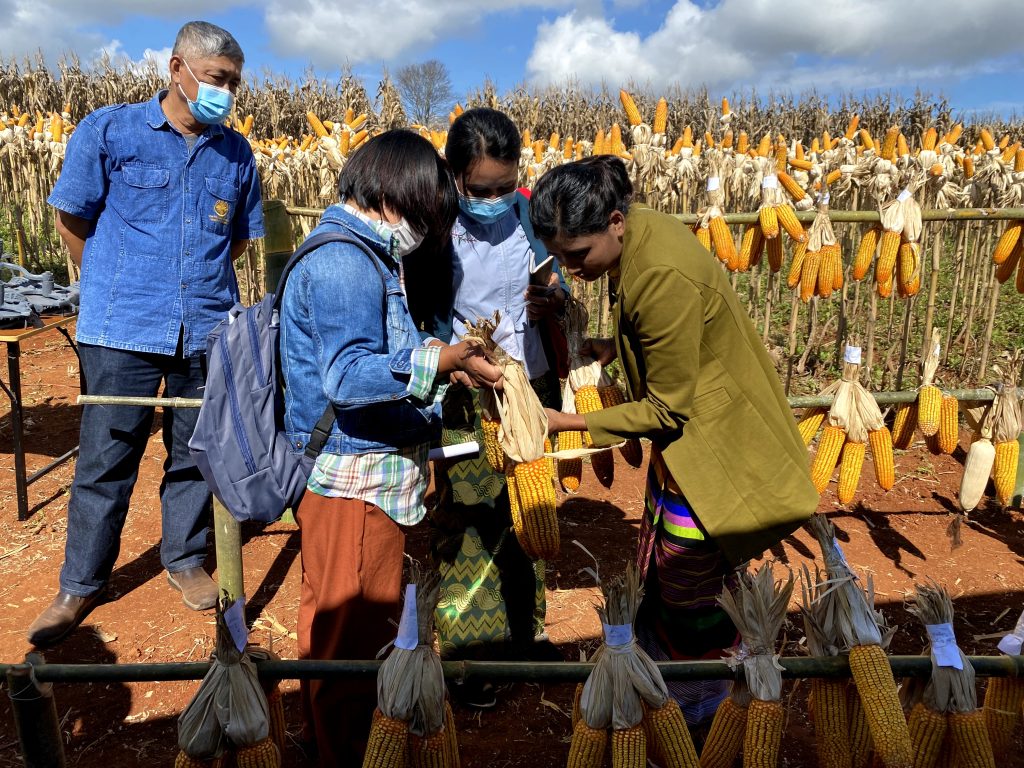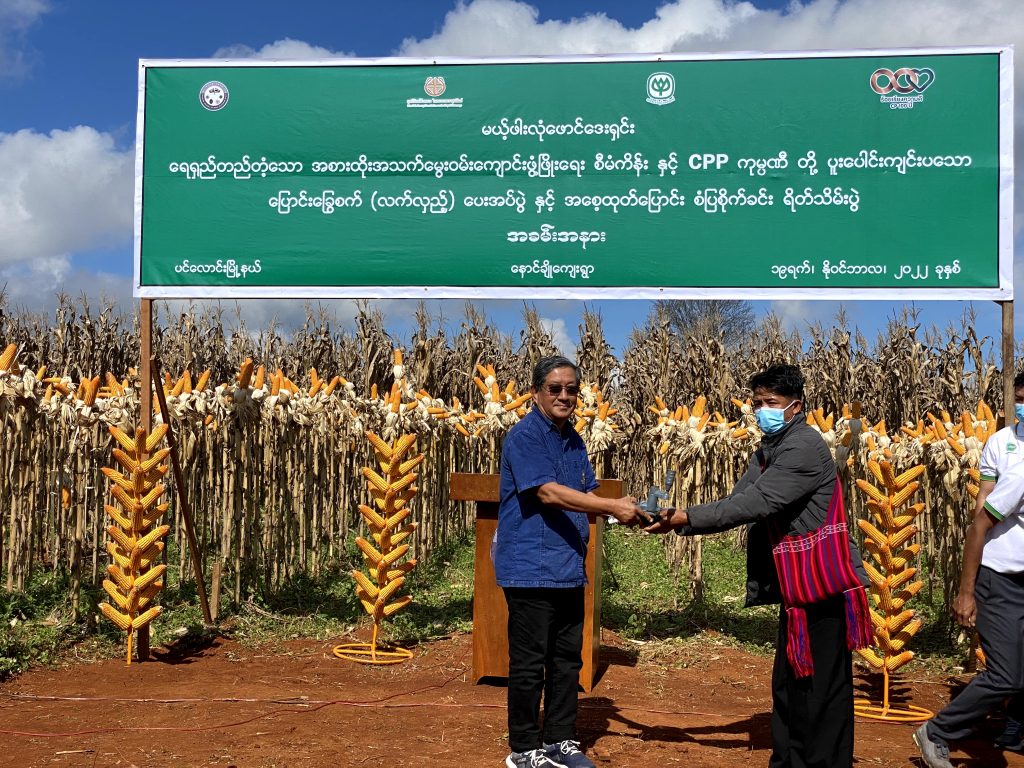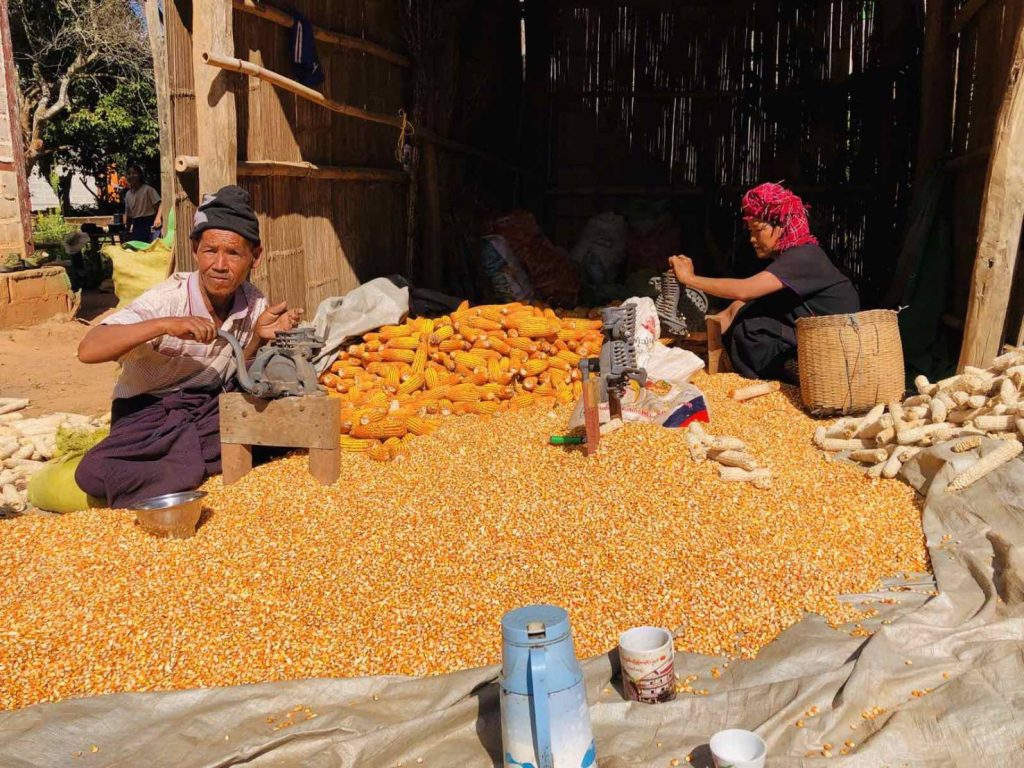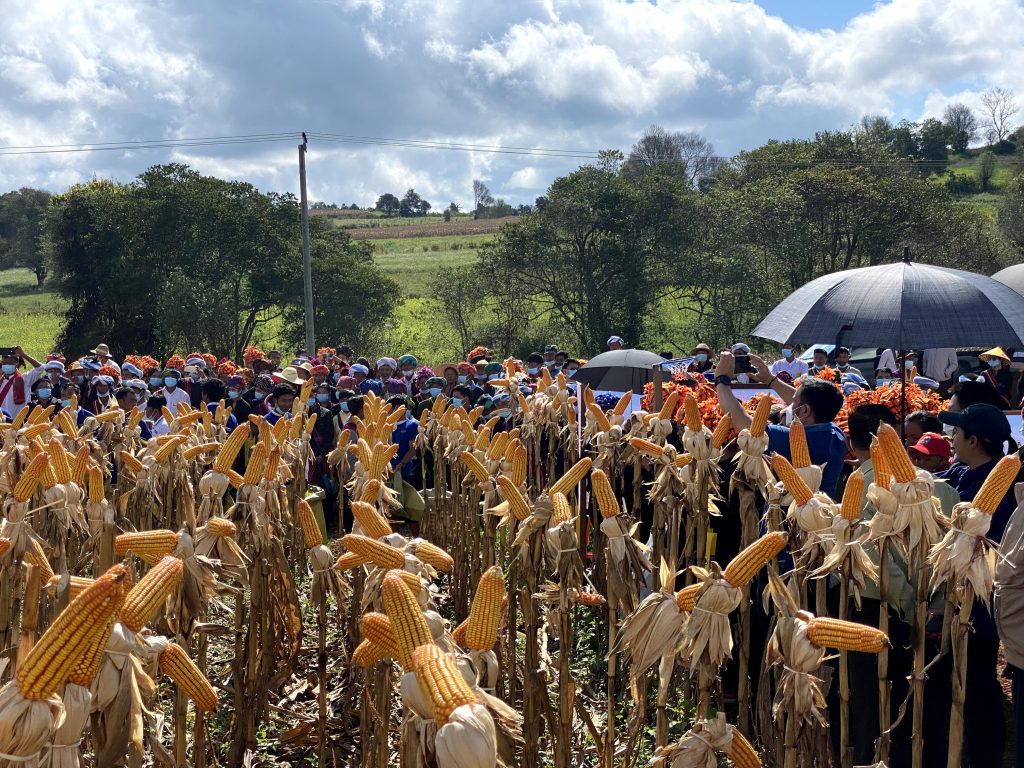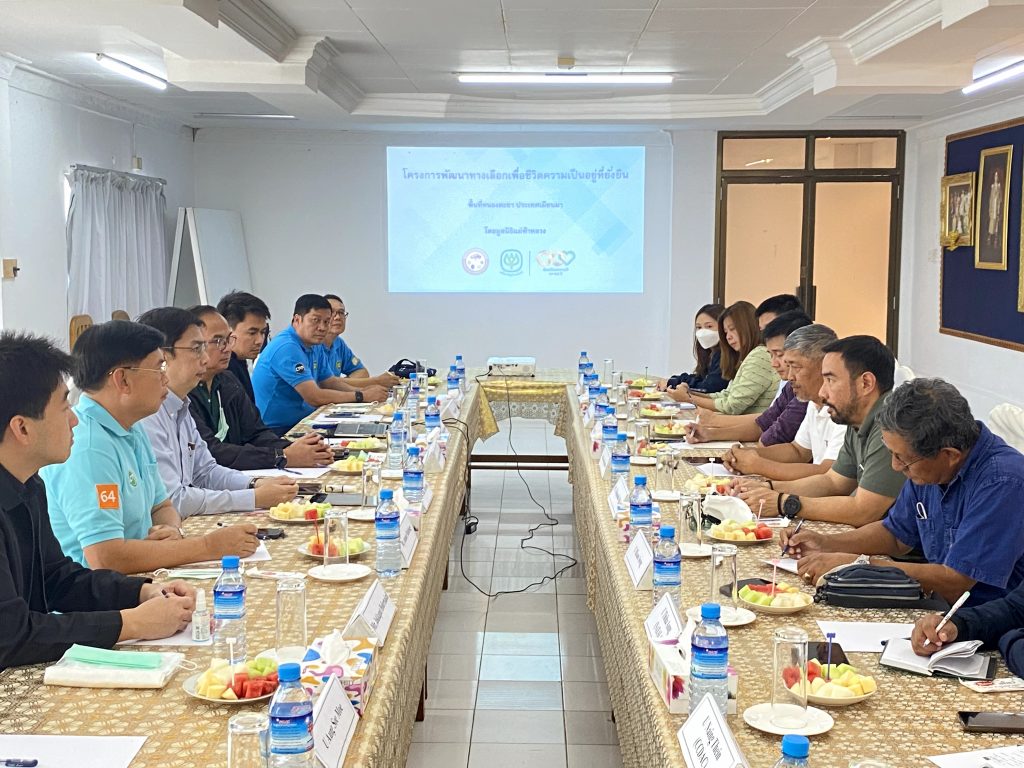To increase agricultural income in project villages and promote the planting of both short-term and long-term crops suitable for the region, a model farm was established in Phayar Phyu village of Paw-In village tract. This farm also serves as a trial site for other various crops. Successful trials are intended to replace opium cultivation with commercially viable crops in project villages. The table below provides detailed information on the short-term and long-term crops currently being tested by the project.
Additionally, to saves time, increase income from crops, and enable selling them at favorable market prices, solar-powered crop drying facilities have been constructed in Thit Pin Mel and Lwel Tet villages. These facilities were built with the active participation of the village communities.

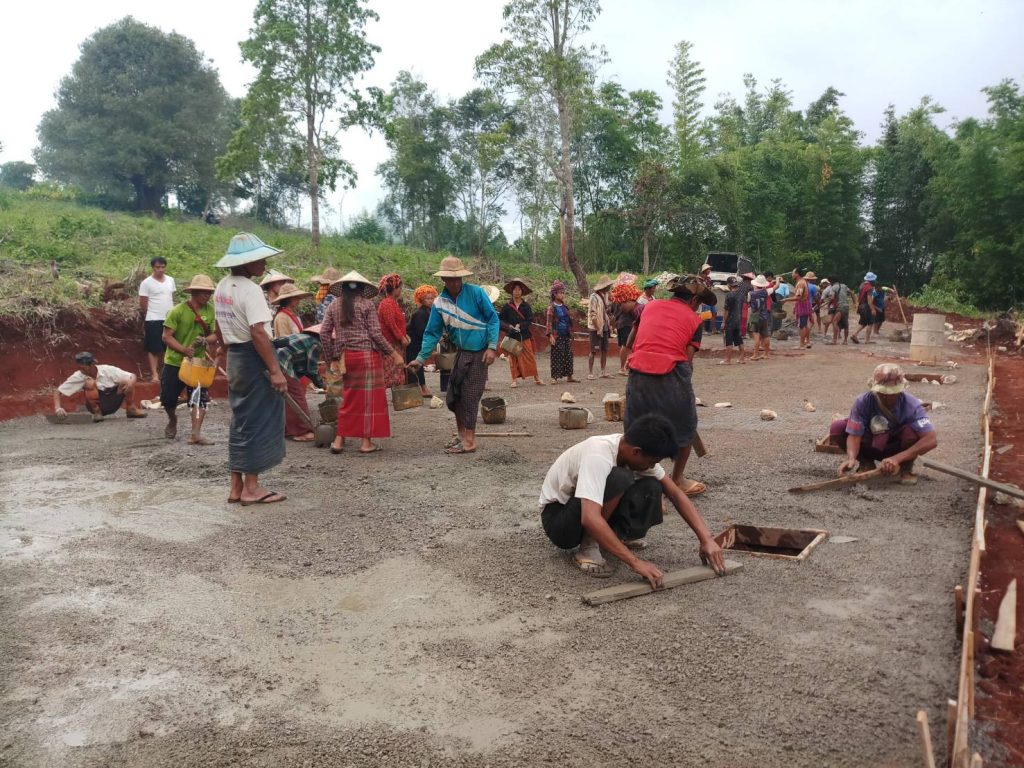

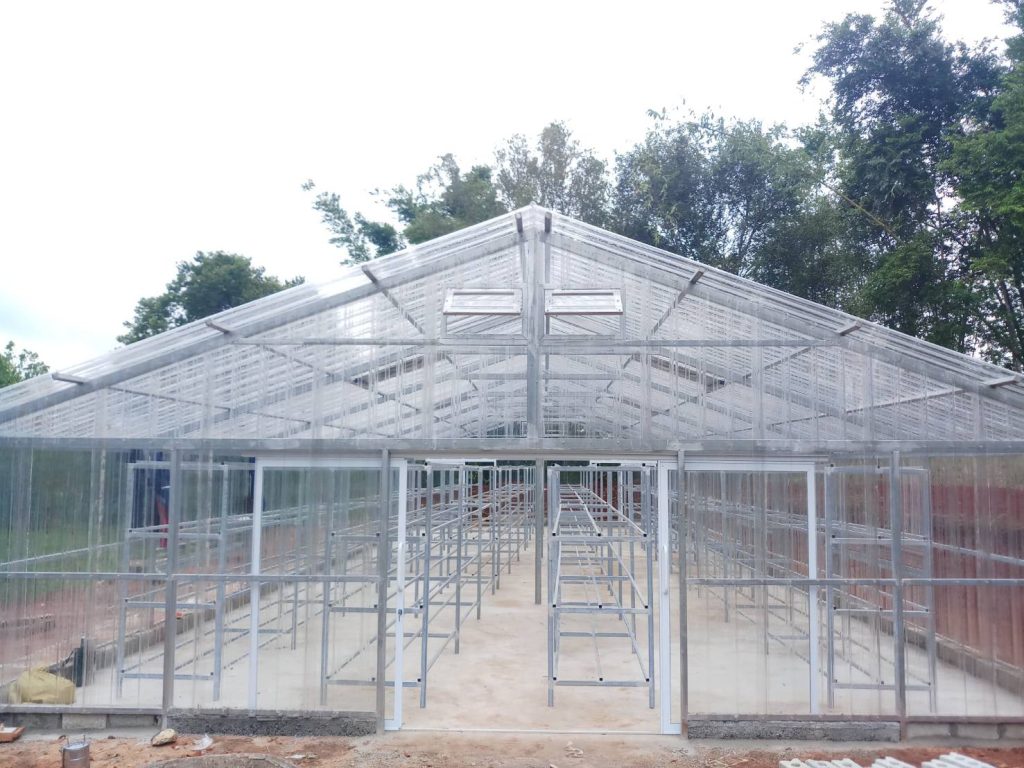
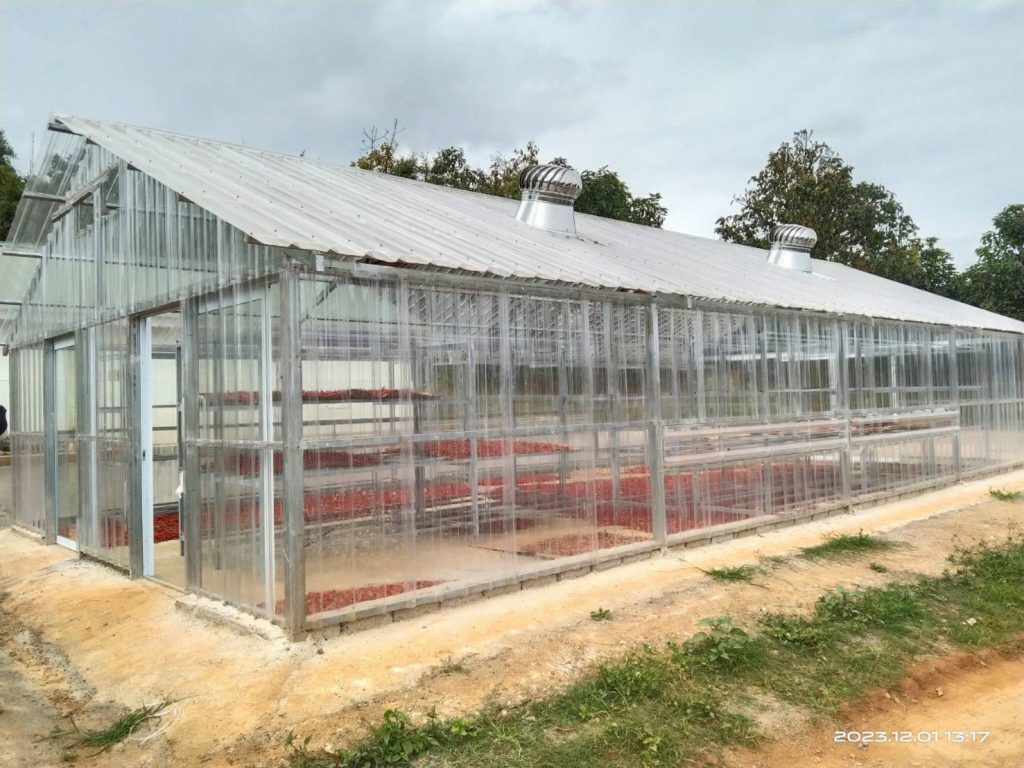
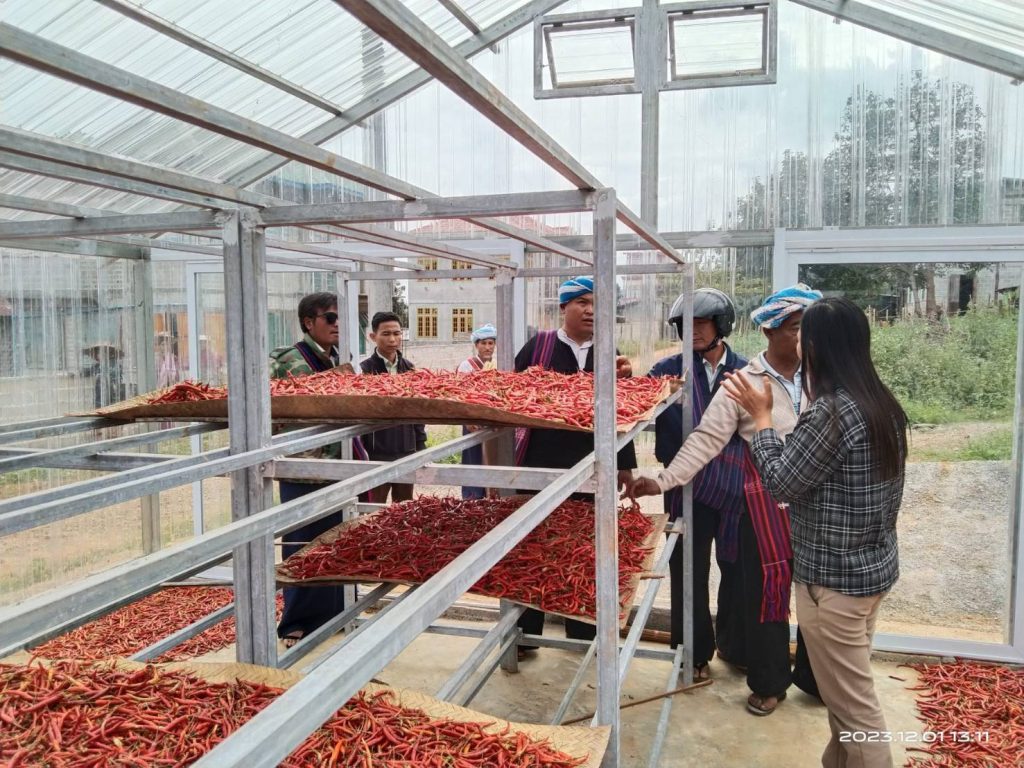
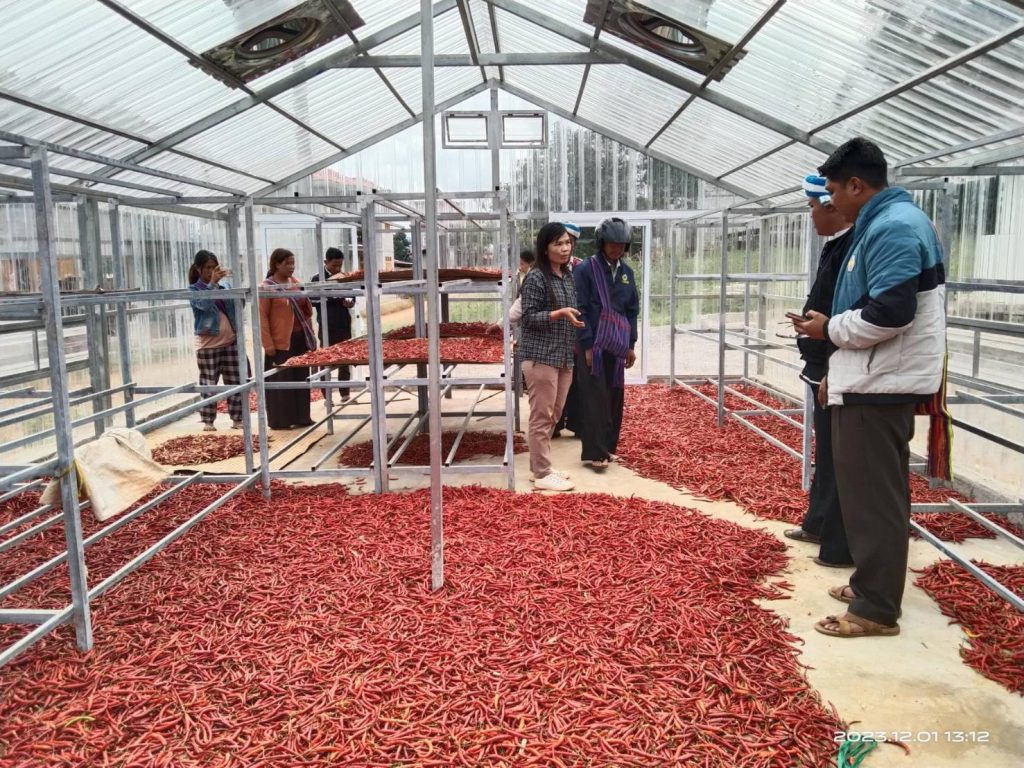
The foundation started growing the corns 2,000 plants, paddy 3 kg, watermelon 200 seeds and sweet mustard 240 seeds in demo plot. And also 364 coffee plants growing for demonstration in agriculture center in 2023 year.
In 2024 year, in addition to short-term crops, the project also planted long-term crops again this year. The trial planting of sweet corn (6 kg), strawberry (4,000 seedlings), vegetables, flowers of cosmos (4 kg) and Levander (27,040 seeds) and sunflowers (1kg) for oil production. After planting, the seeds were taken collect and soil preparation and caring the plants were carried out for replanting. And, project staff, volunteers and daily workers were able to collected 4,000 seedlings of strawberry, 50 kg of sunflower seeds and flowers seed was 8 kg. For some short-term crops, depending on the region, weather and type of land, the germination rate was lower, so the seeds were not recovered. In addition, sweet corn (6 kg) was planted on the maze land and some of the obtained sweet corn was sold in the local market in order to know the market conditions and demand of the region. According to the local price, 1 corn is 350 kyats, and the total amount of corn (2000 corns, 100 bags) from the project was tested and sold.
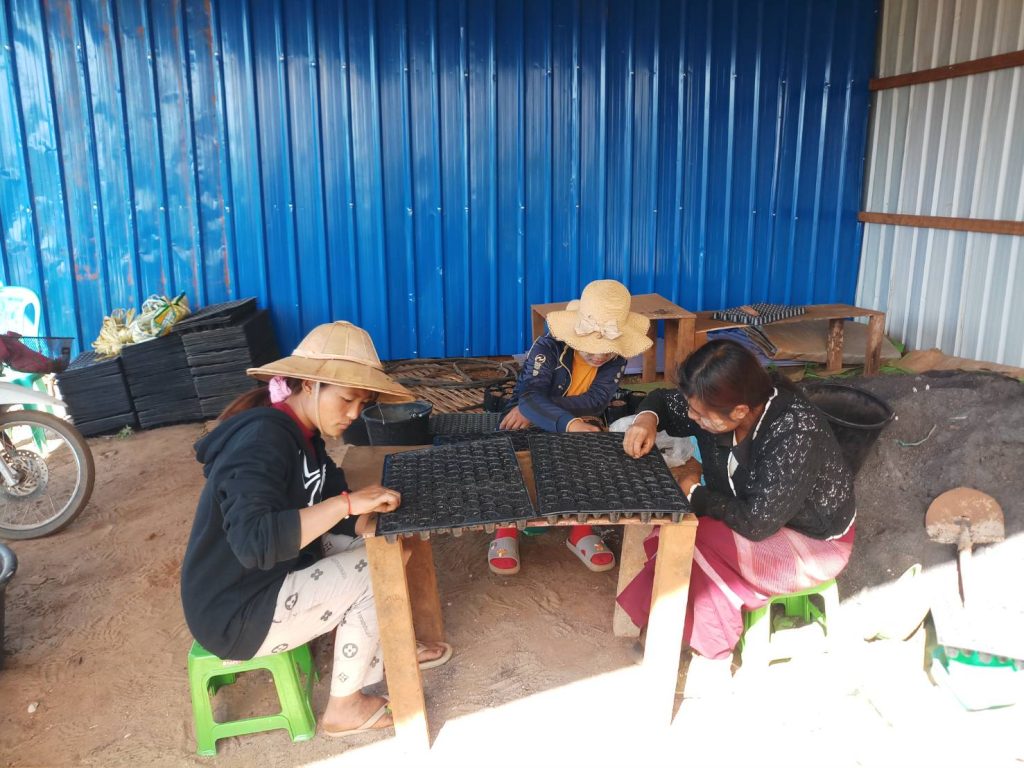




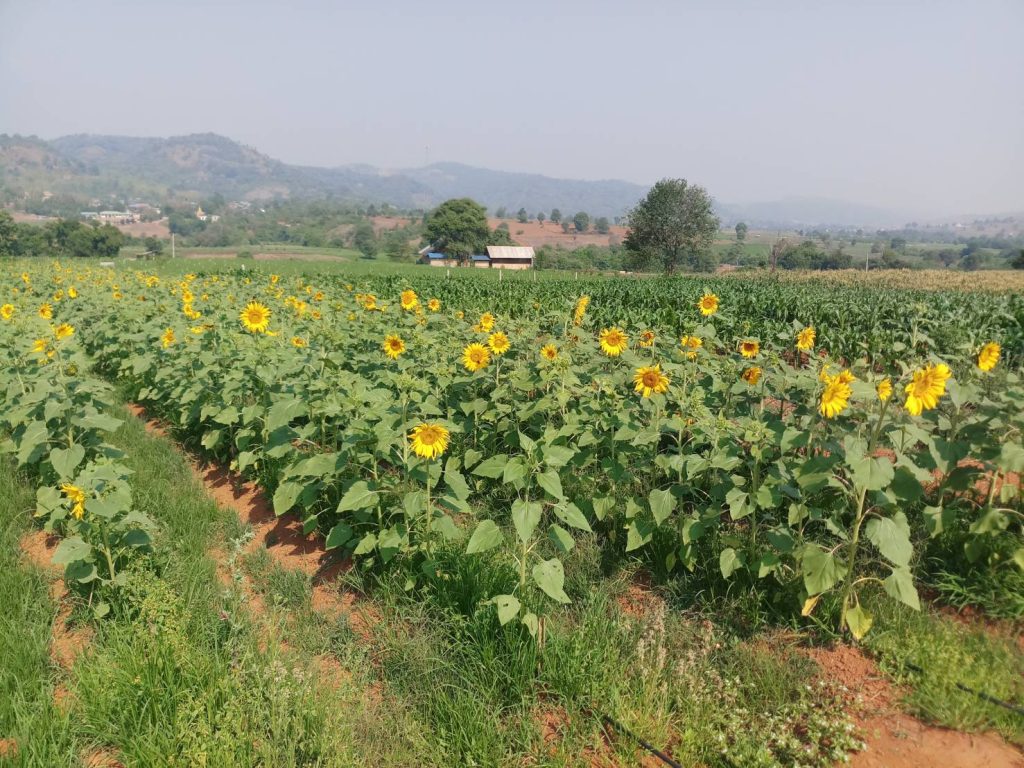

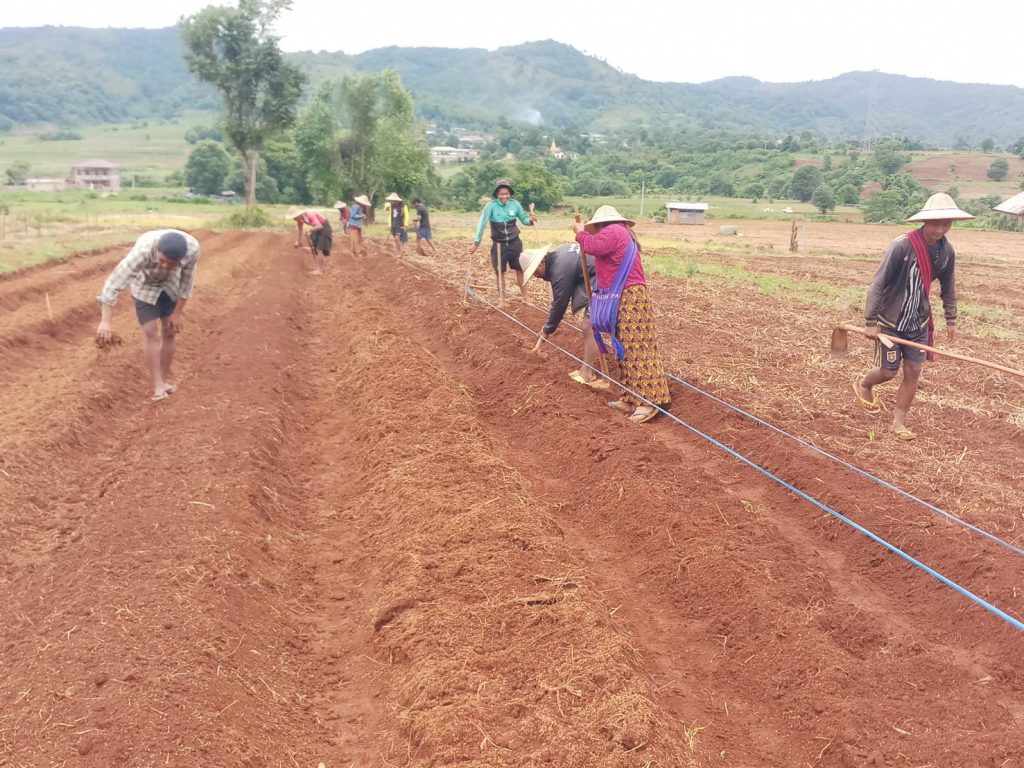


In March 2567, 200 avocado trees are planted as long-term crop. Volunteers have been added fertilizers the under of avocado and caring plants. In addition, in the 22 pear trees farm, which is a local long-term crop, pruning/fertilizing and cutting branches were carried out by volunteers. And, And, the project is still looking for long-term crops that will be suitable for the region and generate income.
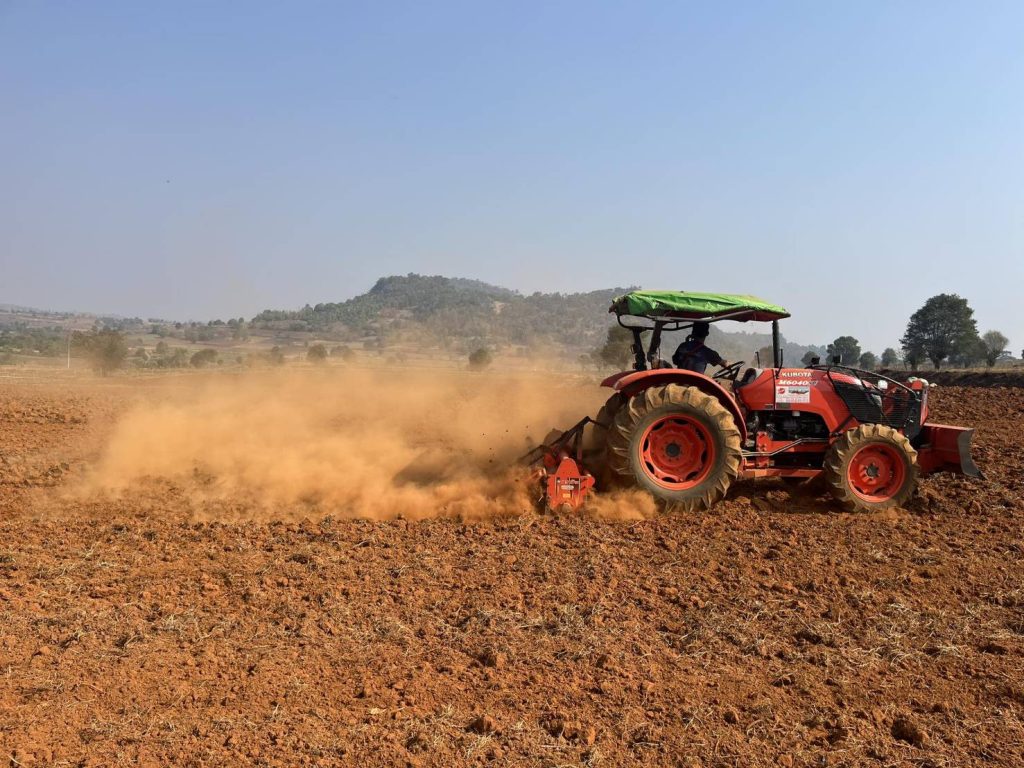


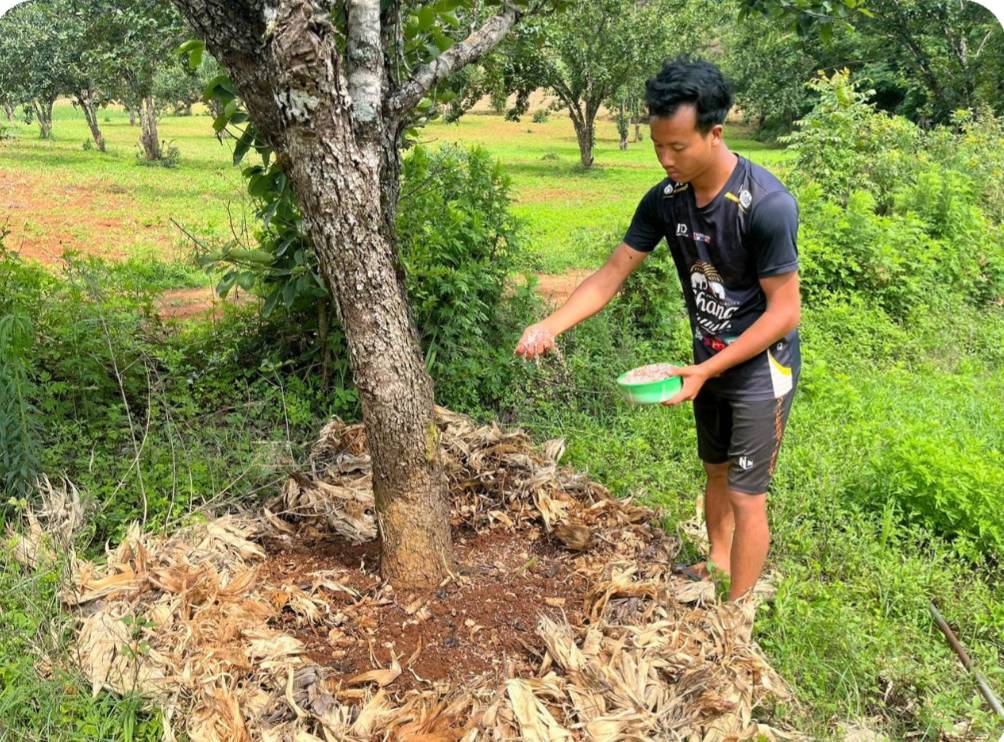


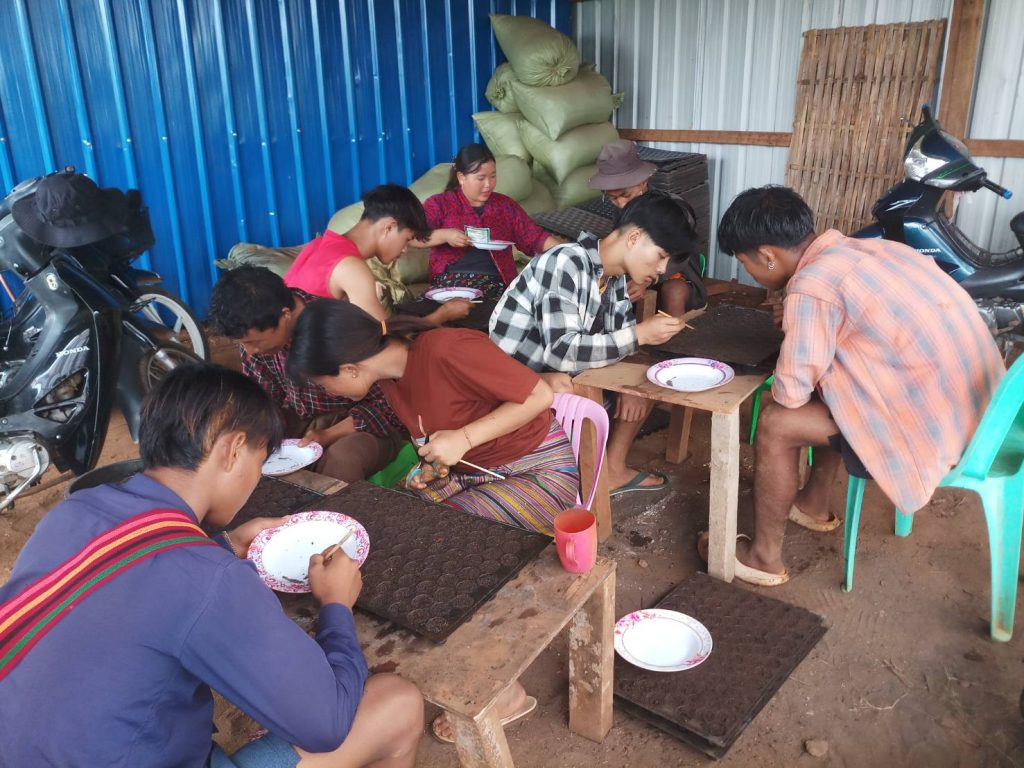

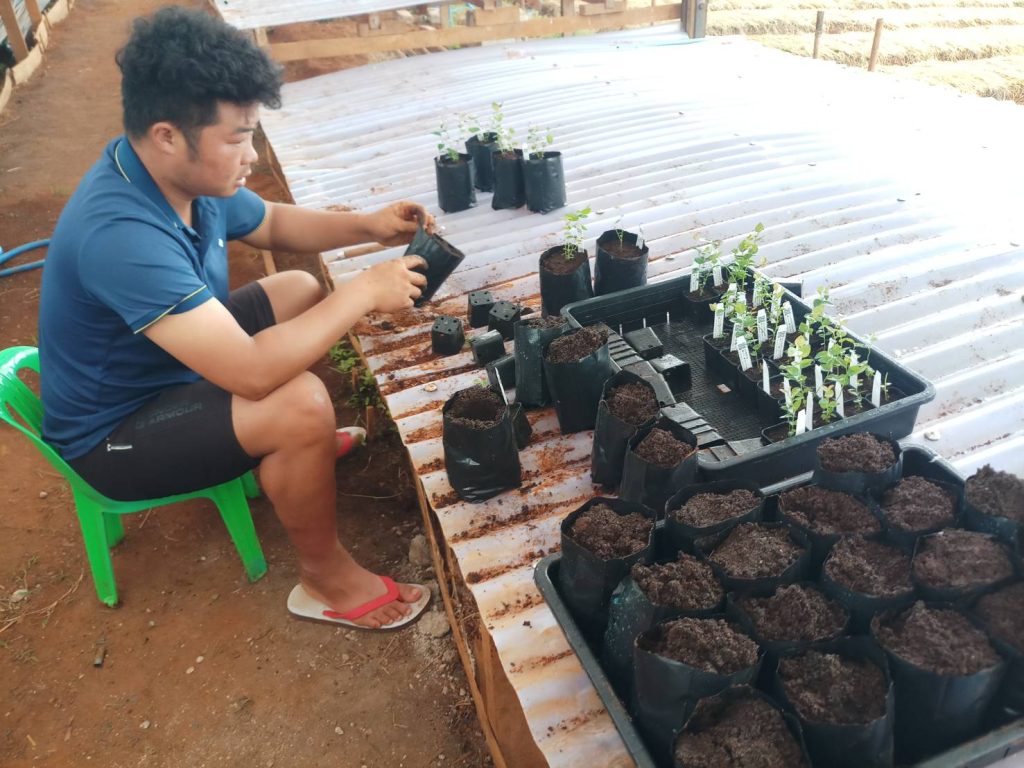
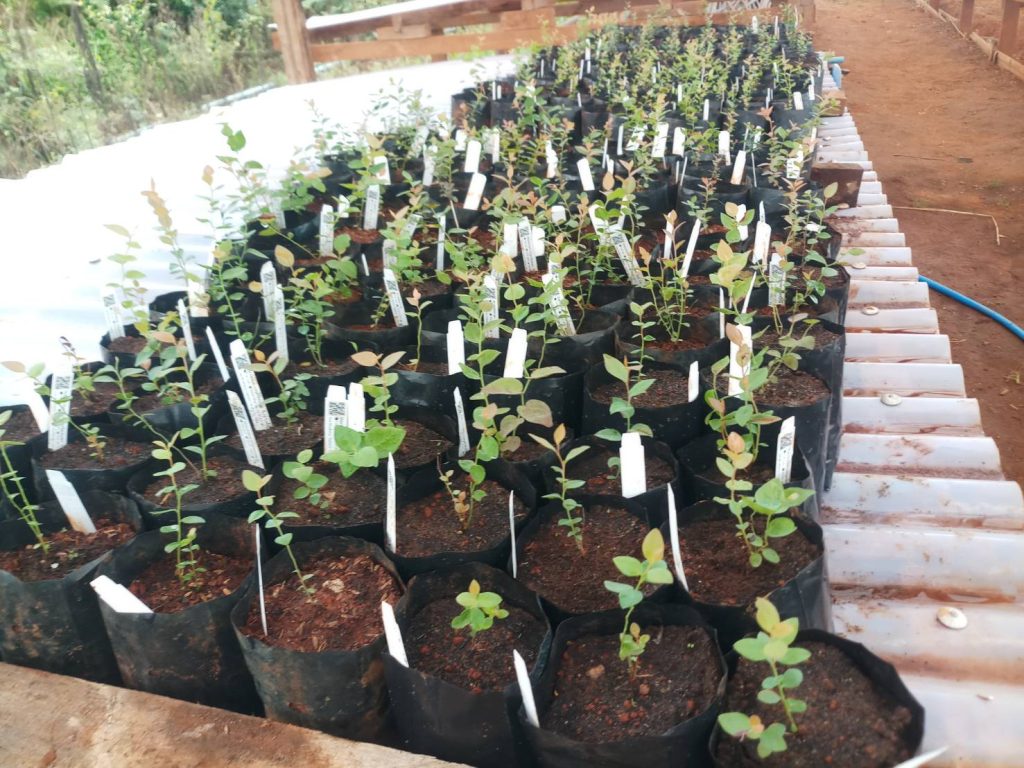
On 23 November 2023, U Khun Ye Htwe, the Chairman of the Pa-O Self-Administered region and the township government team visited the demo plot farm of the project. During their visit, they observed the land prepared for wheat cultivation and inspected the conditions. They also examined the sprinkler irrigation system installed in the demo plot coffee farm and inquired about the different irrigation methods and the functioning of the drip irrigation system used in the demo plots. Additionally, they expressed their interest in visiting the coffee farms planted by the project and commented positively on the location and site selection of the model farm.
